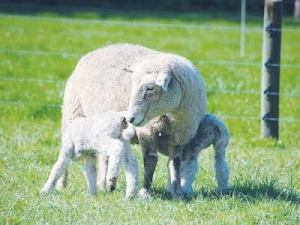Top wool advocate bales out
The conversion of productive farmland into trees has pretty much annihilated the wool industry.
 Despite a strengthening NZ dollar, the varied selection at this week's South Island auction attracted strong support.
Despite a strengthening NZ dollar, the varied selection at this week's South Island auction attracted strong support.
Despite a strengthening NZ dollar, the varied selection at this week's South Island auction attracted strong support.
New Zealand Wool Services International Ltd's chief executive John Dawson reports that of the 7700 bales on offer 85% sold.
The weighted currency indicator was up 2.06% compared to the previous week's auction.
Dawson advises a selection ranging from 21 micron merinos to 42 micron coarse wools with a cross section of styles and lengths provided attractive options to buyers which overrode the possible negative impact of the stronger dollar compared to the similar South Island offering on July 14.
Mid micron fleece were well supported with increased Chinese interest, lifting 4 to 12%.
Fine crossbred fleece and shears were 2 to 3% firmer. Coarse crossbred full fleece lifted 3% for all styles with coarse shears ranging from firm to 3.5% dearer. Oddments were up 3 to 5%.
Where comparable to last week's North Island auction, levels are 4 to 7% higher.
Good competition with Australasia, Western Europe and China principals, supported by Middle East, India and United Kingdom.
The next sale on August 4 comprises about 5000 bales from the South Island.
Controls on the movement of fruit and vegetables in the Auckland suburb of Mt Roskill have been lifted.
Fonterra farmer shareholders and unit holders are in line for another payment in April.
Farmers are being encouraged to take a closer look at the refrigerants running inside their on-farm systems, as international and domestic pressure continues to build on high global warming potential (GWP) 400-series refrigerants.
As expected, Fonterra has lifted its 2025-26 forecast farmgate milk price mid-point to $9.50/kgMS.
Bovonic says a return on investment study has found its automated mastitis detection technology, QuadSense, is delivering financial, labour, and animal-health benefits on New Zealand dairy farms worth an estimated $29,547 per season.
Pāmu has welcomed ten new apprentices into its 2026 intake, marking the second year of a scheme designed to equip the next generation of farmers with the skills, knowledge, and experience needed for a thriving career in agriculture.